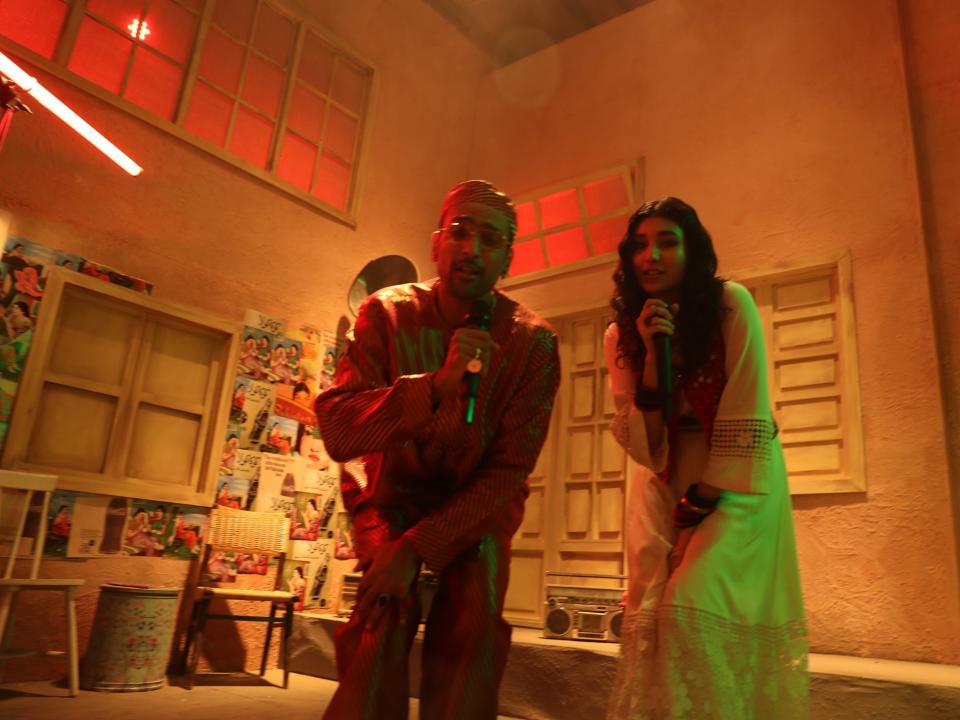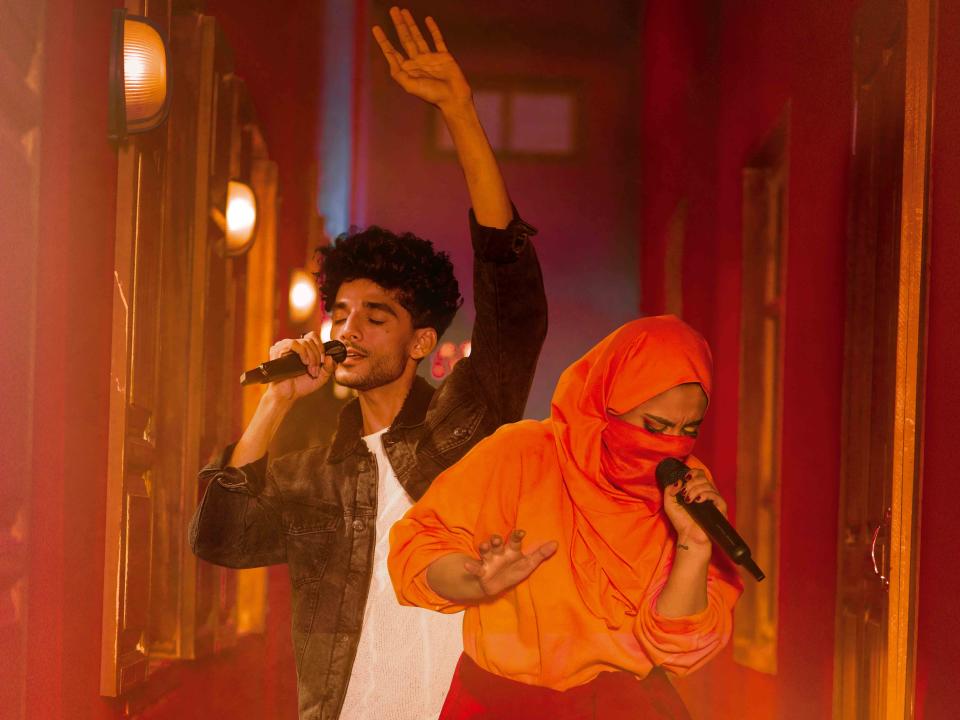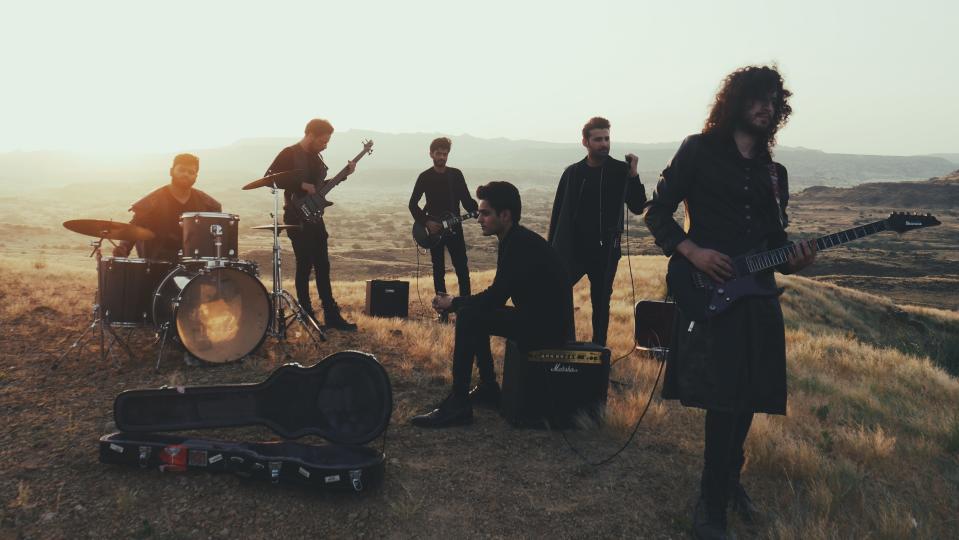'Ms. Marvel' brought Pakistani music to a global audience, but the unlikely savior of the country's music scene? Coca-Cola.
Disney+ show "Ms. Marvel" has brought global attention to Pakistani music.
But, in the early 2010s, Pakistan's music industry was on its knees.
Coca-Cola and Pepsi stepped in with TV shows like "Coke Studio" giving bands a mainstream platform.
Pakistani culture was front and center globally in an unprecedented way due to Disney+'s "Ms. Marvel," which aired over the summer. However, it might surprise viewers to learn that much of the series' soundtrack predominantly consists of songs from a Coca-Cola-sponsored platform called "Coke Studio."
The Pakistani music industry has a rich and diverse sound, reflective of not just the myriad cultures that make up the nation but also influences from around the world.
Pakistan has a notable history of rock music spanning decades. The pioneers of rock in the country, like Junoon and Vital Signs, have performed at sold-out stadiums across the globe and even at the United Nations.
More traditional folk artists like Nusrat Fateh Ali Khan served as inspirations for icons such as Jeff Buckley — who called him his Elvis and listened to his music every day — and collaborated with legends like Peter Gabriel and Eddie Vedder.
However, due to a confluence of issues, including a lack of royalties, anti-competitive practices of record labels and distributors, music piracy, a countrywide ban on social media platforms such as YouTube, as well as rising terrorism preventing concerts from taking place, the Pakistani music scene had almost died out by the early 2010s.
The government itself came under heavy criticism for seemingly abdicating its responsibilities towards the sector.
It was private corporations that stepped up to fill that void.
Companies like Ufone and Unilever made many musicians brand ambassadors, paid for music videos, and invited artists to play at corporate functions and sponsored shows.
Pakistan's music industry was on its knees

To say that private corporations saved music in Pakistan is no hyperbole, according to Fasi Zaka, a preeminent Pakistani music critic with extensive stints on television and radio.
"At one point, the music industry had literally fallen on its face," Zaka tells Insider. "There were no avenues for concerts. We weren't even sure the domestic insurgency could be defeated. At this point, the role of corporations — while not necessarily altruistically motivated — has been integral to supporting the edifice of music in the country."
According to Zaka: "If they had not been around, had they not been pumping money, one of the things we would have seen is far less music being produced."
The two major cola brands, in particular, have a storied role in the development of Pakistani music.
The rise of "Coke Studio"
In 2008, Rohail Hyatt, a founding member of Vital Signs, launched a television show with Coca-Cola in which premier musical talents in the country collaborated in a genre-bending celebration of the best of Pakistani music.
"Coke Studio," as it came to be known, is now a cultural phenomenon. It has been broadcast on multiple television channels, radio stations, and digital platforms simultaneously for 14 seasons. Its YouTube channel has over 3.4 billion views, with songs like "Pasoori" alone garnering hundreds of millions of views and dominating the charts in Pakistan and abroad.
"'Coke Studio' was really important on so many levels," says Zaka. "When your culture is being attacked fundamentally by an insurgent force that doesn't believe in it, and you are finding parts of your culture being done away with, be it due to social change or due to new forms of music — in making that contemporary again, 'Coke Studio' had a really big effect on the country."
According to Aisha Sarwari, Coca-Cola's director of public affairs, communications, and sustainability for Pakistan and Afghanistan, the company does not look at "Coke Studio" as an investment but rather as a part of its cultural DNA.
"What started with humble beginnings grew into a movement that captures the passion, vibrancy, and positivity of Pakistan and our people; a space where music goes beyond any kind of boundary, touching the hearts and minds across the world — connecting people in a way only music can," says Sarwari. "We are exceptionally proud that 'Coke Studio' has come to be recognized as Pakistan's biggest cultural export."
Pepsi has stepped up, too

Coke's main competitor has also made its mark on the industry.
The most prominent contemporary bands in Pakistan today, such as Entity Paradigm or Aaroh, were almost all discovered in the first "Pepsi Battle of the Bands" tournament in 2002. They inspired a whole generation of musicians, including me, to follow in their footsteps.
"One of the more important platforms is 'Pepsi Battle of the Bands' because it's actually injecting new talent into the system," says Zaka. "You'll get new bands in front of a large audience and some of them have really taken off."
One such band is Kashmir, who were thrust into the national limelight when they won season two of "Pepsi Battle of the Bands" when it relaunched in 2017.
"Being a professional musical artist in Pakistan, I have a very different view from other people who aren't professional musicians. We believe that corporations played a really major role in promoting music in the country," says Shane J. Anthony, Kashmir's drummer.

"We've been a band since 2012 with this lineup and our break was through 'Pepsi Battle of the Bands.' We did a couple of shows a year before that and we were just grinding it out and nothing was coming to fruition," Anthony explains. "We were so lucky with the competition, and it made us realize the power that these corporations have and the effort they are putting into the music industry."
Two major criticisms often directed towards corporations involved in the music industry are that they can be exploitative and stifle creativity.
What constitutes fair compensation for an artist by a corporation is dependent on who you ask, however, in an industry where many musicians are operating on passion alone and are resigned to the fact they won't be making much — if any — money from their art.
It was this passion to have their music heard that drove Kashmir to enter "Pepsi Battle of the Bands" without realizing there was a cash prize of five million rupees that came with winning it.
"It was mindblowing to us that we could make money from this," says Anthony. "Honestly, even after we won 'Pepsi Battle of the Bands,' the amount of money we got paid from a concert right after that, we just couldn't believe it. It took us a whole year to accept we were where we were."
Anthony also says the band never faced any interference with their creative process from their sponsor.
"We recorded our first album in collaboration with Pepsi and had complete creative freedom. We're now releasing our second album without any corporate involvement and have the same amount of creative freedom as we had back then," says the drummer.
What's next for Pakistani music?
Despite corporations helping prop up the industry through troubled times and beyond, Pakistani music is still far from thriving.
"It's funny because when we speak to other musicians, they don't even call it an industry," says Anthony. "They call it a fraternity because it's so small in Pakistan."
While there are indeed several success stories, Zaka suspects the number of musicians — other than the big names — that earn a viable income solely through their art can be counted on one hand.
"Corporations do have a tendency to reward legacy acts," he says. "They aren't really expanding the ecosystem in a meaningful way."
The solution? "We need to have much greater numbers of new singers and bands being introduced and gaining exposure," says Zaka.
"It might be difficult to argue for a more philanthropic outlook, perhaps, but if corporations can find a profitable way to spotlight new talent on a larger scale, it will truly benefit the industry as a whole."
Read the original article on Insider

